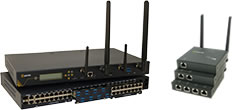
The cost effectiveness of the cloud
By Max BurkhalterMarch 25, 2021
Developers, cloud architects and engineers are continually innovating and improving on data storage and applications. The on-premise system is slowly giving way to cloud and hybrid solutions, mainly thanks to the cost savings associated with migrating to the cloud. But is the tradeoff between complete control and reduced costs worth it?
Formerly, cloud services were seen as problematic from several angles. Security was a concern cited by many CIOs, who worried about the liability of storing data in the cloud. That is slowly shifting; according to a Cloud Impact Study from Aptum, more than half of survey respondents (51%) now see security as the main driver behind cloud adoption but 38% still believe security and data protection are their primary barrier to cloud transformation. Still, as security continues to improve, the number of companies suspicious of cloud storage will continue to decline, and more and more businesses can be expected to complete migration.

The other area of contention when it comes to cloud migration was whether performance would suffer. However, cloud solutions now approach the performance levels of the traditional data center, and migration has become more streamlined, Forbes notes that 93% of enterprise respondents to Flexera's 2020 State of the Cloud Report said they are now using a multi-cloud or hybrid cloud solution. Nearly 3 out of 4 say cost optimization is their top cloud-related goal. The advantages of cost reduction in relation to cloud storage as opposed to on-premise storage is undeniable.
On-premise costs are prohibitive compared to the cloud
The costs of maintaining an on-premises data center keep on rising, as datasets get bigger and more space must be allocated for both data itself and applications for data modeling, analysis and other resources. The data-swarmed environment means on-premise systems must be repeatedly upgraded, at significant CAPEX. Cooling, floor space, energy costs, and more all increase the cost of on-premise.
In contrast, cloud costs can be much more predictable, and suit modern needs for systems to be as remote as the newly distributed workforce. When data is securely stored in the cloud, the need for a large on premise system evaporates and companies that want to shift away from a large physical presence to a telecommuting workforce and small brick-and-mortar HQ can easily do so.
The shift from CAPEX to OPEX
Capital expenditures like those required for purchasing more on-premises storage, and operating expenses, such as those related to consumption of cloud storage services, are two completely different parts of a company's budget, and OPEX is often much easier to justify than CAPEX. When you consider that in-premise also has ongoing OPEX costs in the form of maintenance, support, cooling and power costs, etc., it becomes clear that cloud storage migration can be an easy way to create costs savings.
Instead of architecting an on-premise storage infrastructure environment for workloads, particularly at enterprise level, you can scale as needed in the cloud, gradually matching costs with increased revenues. Likewise, your resiliency will be better in the cloud; with backups redundant across multiple off-premise locations, you don't have to worry about maintaining data files in multiple locations or on-premise physical threats.
Shifting from on-premise to cloud storage means you'll need stable networks for access. Perle provides enterprises with the tools they need for hybrid environments. Read our customer success stories today.



